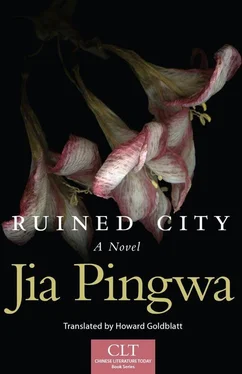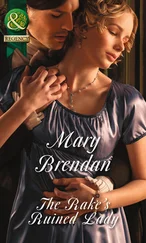“I’d like to ask you something, Zhuang Laoshi. Do you fashion the characters in your books after real people?”
“That’s a hard question to answer. I simply make up many of them.”
“How can you create them in such detail? I’ve said to Zhou Min that Zhuang Laoshi is a man of rich and acute emotions, and his wife is lucky to have such a husband.”
“She has said that if she comes back in another life, she does not want to be a writer’s wife.”
Surprised to hear that, Tang Wan’er paused, then lowered her eyes and said, “Then she doesn’t know how lucky she is or how unpleasant it is to be to be the wife of a coarse, unrefined man.” A tear fell from her eye, making Zhuang wonder about the woman’s background. He had never seen her husband, but he could imagine what he must be like.
“You’re a lucky woman,” Zhuang consoled her. “I can tell that from your appearance. Believe me, you are not ill-fated. The past is the past. Things are fine now, aren’t they?”
“What kind of life is this? Xijing is nice, but we need to settle down. You can tell fortunes, what do you see in mine?” She laid a fair hand on his knee. He took the hand and experienced strange feelings as he revealed signs of a woman’s status based upon what he had read in a physiognomy text: a round, smooth forehead foretold high status, a wrinkled one low; a high nose high, a sunken one low; lustrous hair high, dull hair low; an arched foot high, a flat one low. The woman examined each of these on herself, and what she saw pleased her. What puzzled her, however, was what counted as an arched foot. Zhuang reached out but stopped before touching her and simply pointed to a spot below the ankle. She took off her shoe and raised her foot until it nearly touched his face. He was surprised by how lithe she was and noticed what a dainty foot she had. The transition from calf to foot was flawless, her instep so high it could accommodate an apricot. Her toes were as delicate as bamboo tips, starting from the long big toe and progressing down to the short little one, which was wiggling at that moment. Zhuang had never seen such a lovely foot, and he nearly let out a shout. After she put her shoe and stocking back on, he asked what size shoe she wore.
“A thirty-five,” she said. “Too small for someone as big as me, all out of proportion.”
With a laugh, he stood up. “Then these belong to you.” He took the shoebox from his bag and handed it to her.
“They’re beautiful. But they must cost a fortune.”
“You expect to pay for them? No, they’re yours, try them on.”
Without stopping to thank him, she put them on and flung her old shoes under the bed.
Zhuang was in a wonderful mood when he returned to the restaurant, where Zhao and Huang greeted him not with open arms, but with a complaint for being gone so long and not bringing his new friend with him. He did not share their desperate hunger. He wanted a drink.
During the meal that followed, the three men drank a great deal. The top half of the bottle was accompanied by cordial, even affectionate, talk, while the bottom half brought out a more muscular dialogue. They ordered a second bottle and halfway through were ranting and raving. When they finished off the final half, marked by silence, it was late afternoon. Zhuang got up to leave.
“I’ll see you home,” Zhao Jingwu said.
Zhuang waved him off and stumbled out to the Magnolia. He climbed on and rode off, still sober enough to spot misspellings on shop signs along the way. He made it back to the house on Shuangren fu Avenue, walked inside, and immediately fell asleep, not waking till night had fallen and Niu Yueqing called him to dinner. He got up and sat on the edge of the bed. Not interested in eating, he said he would spend the night at the Literary Federation compound.
“You don’t have to do that, you can spend the night here,” his wife said.
Zhuang hemmed and hawed, saying he had an article to write.
“You can go if you want,” Niu Yueqing said, “but I’m staying here tonight.”
Zhuang understood what she was telling him, but he needed a quiet place to write. With a pained look on his face, he sighed and walked out the door.
The fading sunlight created a haze. Birds on the drum tower set up a din as wonton and kebab peddlers turned on lanterns and fired up stoves in front of the gate. Children crowded around an old man selling cotton candy. Curious as to how it was made, Zhuang walked over and watched the man spoon sugar into the spinning head and saw it emerge as fine, cottony threads. When he looked up, he spied Aunty Liu and her milk cow walking up to the gateway. After supplying milk to her regular customers, she and her cow usually rested until the night cooled enough for them to walk home. When the cow saw him, she mooed loudly, sending children scrambling away in fright. “You haven’t bought any milk in days, Mr. Zhuang,” Aunty Liu said. “Aren’t you staying in the compound?”
“I’ll be there tomorrow, and I’ll wait for you.” He walked up to the cow, patted her on the back, and struck up a conversation with Aunty Liu about how much milk the cow produced and what it sold for. She complained about how feed prices were going up, but not the price of milk, and on such a hot day she barely made enough to warrant coming into the city. The whole time they were talking, the cow stood there without moving anything but her head; she looked around, her tongue lolling, her tail slowly sweeping from side to side. “You can’t earn anything if you don’t come,” Zhuang said, “and you still have to feed yourself and her. Look at her, standing there so composed, like a philosopher.”
This casual comment got the cow’s attention. There are people who say that dogs and cats understand human nature, but that cows do even better. A year earlier, Zhuang had stayed with Aunty Liu during a fact-finding trip to the suburbs. Originally a vegetable peddler, she had little skill in operating the scales, and was desperate. “Milk sold in the city is watered down,” Zhuang said, “and people don’t like that. But,” he continued, “the demand is great and the sellers want to make a profit, so they add water. Customers complain, yet they continue to buy the milk. Why not get a milk cow, drive it into the city, and milk it there? You can demand a price that people will gladly pay. You’ll definitely make a better living at that than by peddling vegetables.”
Taking his suggestion to heart, she went to Mount Zhongnan and bought a milk cow, which, as Zhuang had suggested, she brought to Xijing, where he lay down beneath it every day and drank from her teats, earning the animal’s immense gratitude. Now, whenever she saw him, she bellowed a greeting. So when she heard him say she was like a philosopher, she observed the city the way a philosopher would, although no one knew what she was thinking, since she lacked the ability to say so.
On this day, Aunty Liu led her cow over to the wall to rest. Zhou Min happened to be on the wall playing his flute, the slow, heavy strains lingering like a night wind outside a window, or ghostly moans in a graveyard. The sound had a chilling effect on her and the cow, though they listened with enjoyment. When the music stopped, they looked up at what resembled the paper cutout of a musician walking off slowly. Experiencing emotions that words could not describe, they sat with their heads lowered and fell asleep. The cow turned thoughtful as she lay on the ground chewing her cud:
When I was at Mount Zhongnan, I knew that the history of humans is tied up with that of cows. To state it differently, either humans evolved from cows or cows evolved from humans. But that’s not how they see it. Humans say they evolved from apes. How could they possibly think that? They actually believe that creatures with asses as thick and as red as a face were their ancestors! Humans lie in order to have a clear conscience while keeping us enslaved forever. If this is a false accusation that can’t be set straight, then let’s reconsider: Cows and humans both descended from apes, following separate tracks of evolution, one that learned to speak and one that did not; speaking is how humans express their thoughts, while cows’ thoughts are manifested in chewing cud. And that’s it. Are cows, like fleas, so insignificant that they have no reason to exist in this vast, chaotic world? No, we are enormous creatures — large bodies, four strong hooves, and steely pointed horns fit for battle — and yet, in a world where humans are under assault by all other wild creatures, cows alone stand by them, cooperate with them, and do their bidding, all because of blood ties that approach the level of soul mates. But humans treat us the way they treat chickens and pigs, to be used as they see fit. As for the chickens and pigs, the humans must feed and take care of them in order to acquire their eggs and meat, while cows plow their fields, turn their millstones, haul their loads, and even produce milk for them to drink! Ah, you humans! You have conquered cows by forsaking fairness and with the invention of the whip .
Читать дальше


![Matthew Vincent - [you] Ruined It for Everyone!](/books/216429/matthew-vincent-you-ruined-it-for-everyone-thumb.webp)









